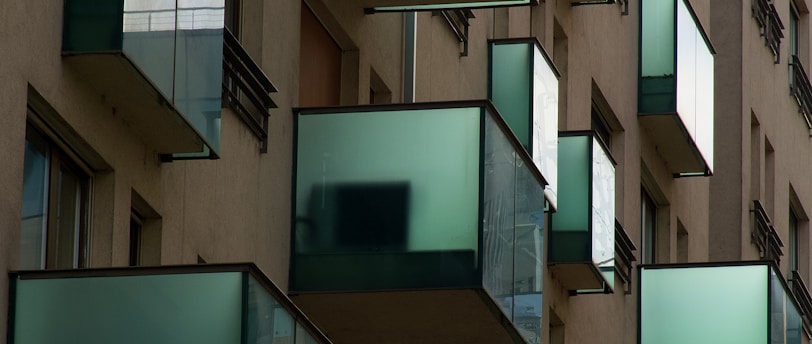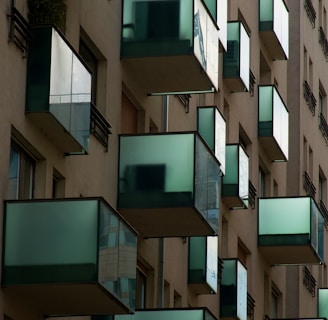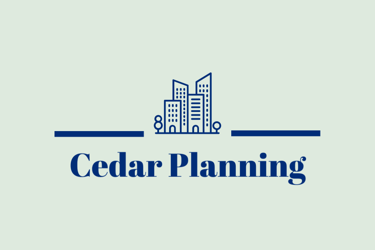Conversion of Commercial Properties to Residential Uses: Class MA Permitted Development Rights
Class MA is a powerful permitted development right allowing many commercial properties to be converted to residential uses. Read our post for some valuable information.
9/30/20254 min read


Introduction
Converting commercial properties to residential uses has become an increasingly popular option for property owners and developers. The recent changes in planning regulations in the UK have made it easier to convert certain types of commercial properties to residential use without the need for a full planning application. One such change is the introduction of Class MA Permitted Development Rights, which allows for the conversion of properties classified as Class E to residential use.
At Cedar Planning, our consultants provide a wide range of planning services (view here), and are experts in securing Class MA permissions to convert commercial properties into residential uses. Use the button below to review a free initial appraisal of your proposal.
Knowing your Class E from your Class MA
Class E is a classification under the UK's Use Classes Order, which covers various types of commercial premises, including shops, offices, restaurants, cafes, building societies and even health centres and creches.
Class MA Permitted Development Right that under certain rules and regulations allows for Class E properties to be converted to residential uses, without the need for a full planning application.
Can I use Class MA on my business property?
For Class MA Permitted Development Rights, the following need to apply to your property:
From the 5th March 2024, you can even use Class MA on commercial properties that are currently in use;
The building must have been in Class E use for a period of at least 2 years from the date of the prior approval application;
From the 5th March 2024 there is no size limit on buildings that can be converted via Class MA;
Buildings located in some protected areas, such as Areas of Outstanding Natural Beauty, World Heritage Sites, Sites of Special Scientific Interest (SSSI) or listed buildings;
Extra restrictions are in place for buildings in Conservation Areas, which we explain in further detail later.
If your building is listed you cannot use Class MA to convert to residential, but you may be able to convert the upper floors to residential with Class G Permitted Development Rights - see our blog here for more information.
Beware of Article 4
Article 4 restrictions are used by local Councils to remove certain Permitted Development Rights. A number of Councils, especially London Borough's, have used Article 4 restrictions to limit Class MA Conversions. If your property is covered by an Article 4 restriction, you cannot use Class MA and will need to apply for full planning permission.
Prior Approval Application
While the conversion of Class E properties to residential use under Class MA Permitted Development Rights does not require a full planning application, it does require a Prior Approval application to the local council. This application is necessary to ensure that specific considerations are taken into account before the conversion takes place. This means that you should not start work before getting approval from the council.
Prior Approval Matters
Several key factors are considered by the local council during the Prior Approval process. These factors include:
1. Transport
The impact on transportation infrastructure is a crucial consideration. The council will assess the potential increase in traffic and the availability of adequate parking spaces for the converted residential units. The aim is to ensure that the conversion does not unduly burden the local transport network.
2. Flooding
The risk of flooding is another important consideration. The council will assess whether the proposed conversion could be exposed to a high risk of flooding and whether appropriate measures are in place to mitigate this risk.
3. Contamination
The presence of any contamination on the site is a significant concern. The council will evaluate whether the conversion could potentially expose residents to harmful substances and whether remediation measures are necessary to ensure the safety of future occupants.
4. Noise
Noise pollution is a common issue in urban areas. The council will assess whether the proposed conversion could result in an unacceptable level of noise for future residents. Measures to mitigate noise, such as soundproofing, may be required.
5. Natural Light
The availability of natural light is an essential aspect of residential properties. The council will assess whether the proposed conversion allows for adequate natural light in the residential units, ensuring a comfortable living environment for future occupants.
6. Minimum Space Standards
As part of the Prior Approval application, the Council will check to see if the proposal accords with the Governments Technical Standards for the size of flats. It is vitally important that your proposal meets these standards, as failure to comply will almost guarantee that your application is refused. For more information on minimum space standards view our blog post here.
Can I use Class MA in Conservation Areas?
For development in a Conservation Area, there is an extra consideration which the Council will take into account.
While Class MA isn't blocked in Conservation Areas, if your site is located in one and you want to convert the ground floor, the impact of that change on the character and sustainability of the conservation area will be taken into account.
If your building is a listed building, you cannot currently use Class MA. If you want to convert the property to residential uses, you will either need to submit a full planning application (and listed building consent) or you can convert the floors above a retail unit by using Class G Permitted Development Rights.
How can I source Class MA opportunities?
If you are looking to take advantage of Class MA Permitted Development opportunities, contact us today as we can utilise the latest technology to simplify your site sourcing.
Need Professional Support?
Use the form below to receive a free no-obligation initial assessment of your proposal or site.
This post covers
The type of buildings can use Class MA Permitted Development Rights;
The process of using Class MA for your building;
What matters the Council take into account; and
What recent changes to Class MA Permitted Development Rights could mean for you and your portfolio.
Contacts
Email: info@cedarplanning.co.uk
Phone: 07418 610156
Office (by appointment only) Cedar Planning Ltd, 82a James Carter Road, Mildenhall, Bury St Edmunds, IP28 7DE


Click the above button for a free Whatsapp consultation

